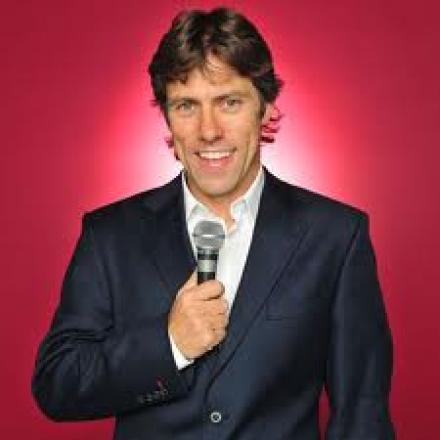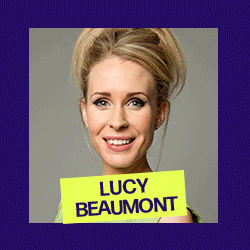
I don't know what it is about stand-up comedy but everyone seems to be at it these days. Maybe it's because nobody has any job security any more. Maybe it's because everyone at heart is a bit of a show-off. Maybe it's because men have been told that if they don't look like George Clooney the best way of getting a woman into bed is by making them laugh.
Whatever the reason, we are approaching Comic Relief, that time of year when our minds are focussed on comedy. And when the BBC thinks that it is a good idea to get people who have never done stand-up before to do stand-up comedy. The Stand-Up If You Dare project will be inviting local people around the UK to get up onstage and see if they are another Michael McIntyre. Apart from the fact that one Michael McIntyre is more than enough thank you, I somehow doubt if this is a good way to unearth new talent.
I don't want to be a bit of a killjoy and a spoilsport, but it takes more than a crash course and a bit of mentoring from a minor star to be a great stand-up. The real way to learn is to gig. Then gig some more. Then gig some more. When Jimmy Carr started out he would gig as much as possible. It is the only way to get better. Or to find out that you will never be any good. Stand-up fits in very neatly with Malcolm Gladwell's theory about genius being a little bit natural talent but mainly down to about 10,000 hours of hard graft.
I wonder if Jimmy Carr is a little bit to blame for this boom in people wanting to try stand-up for Comic Relief or sign up to a comedy course. When Carr was in the news last year over his tax affairs I may not have been the only one to have been impressed by the size of his north London house. If that is what you can have if you become a successful comedian then perhaps that is why so many people are having a go at it. Politicians such as Lembit Opik had already seen it as a possible career move and had a bash, though perhaps that makes a bit of sense. Performing in Westminster and performing onstage at The Comedy Store may not be a million miles apart.
Without wishing to get romantic and nostalgic about the pre-boom years, though, the nice thing about the current generation of superstars is that when they started out they never imagined that they would be this successful. It just wasn't possible. When I interviewed Alan Davies recently he said his dream was playing one night at the Hammersmith Apollo like Ben Elton. Stewart Lee's ambition was not even that grand. He hoped to carve out a modest career in arts centres, following the template of folk singers he liked.
As much by luck as forward planning, the likes of Jack Dee, Lee Evans, John Bishop and Jo Brand are richer beyond their wildest expectations. I worry now, though, that the next generation of stand-ups coming through are doing it because they have seen the big cars comedians drive and the big houses they live in and are doing it because they want a piece of the action, not because they are committed to the craft/art.
The recent Funny Business documentary on BBC2 showed wannabes doing club sets and dreaming of that break on Live at the Apollo. I've got nothing against ambition. I just worry that if comedians aim for the Apollo they will develop an identikit observational comedy act. And when the public have seen enough identikit acts they will lose interest and the bottom will fall out of the comedy boom. And then people will not be able to get sponsors for their Comic Relief stand-up performances.
So please. If you are thinking of giving up your day job and pursuing a comedy career, make your act interesting and innovative. Or the starving children of Africa will suffer.





